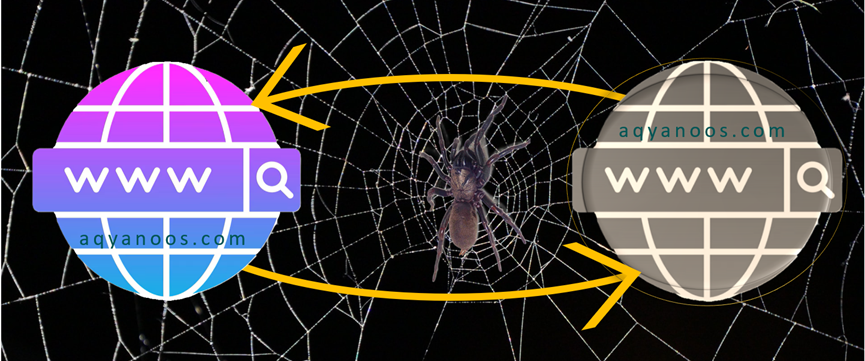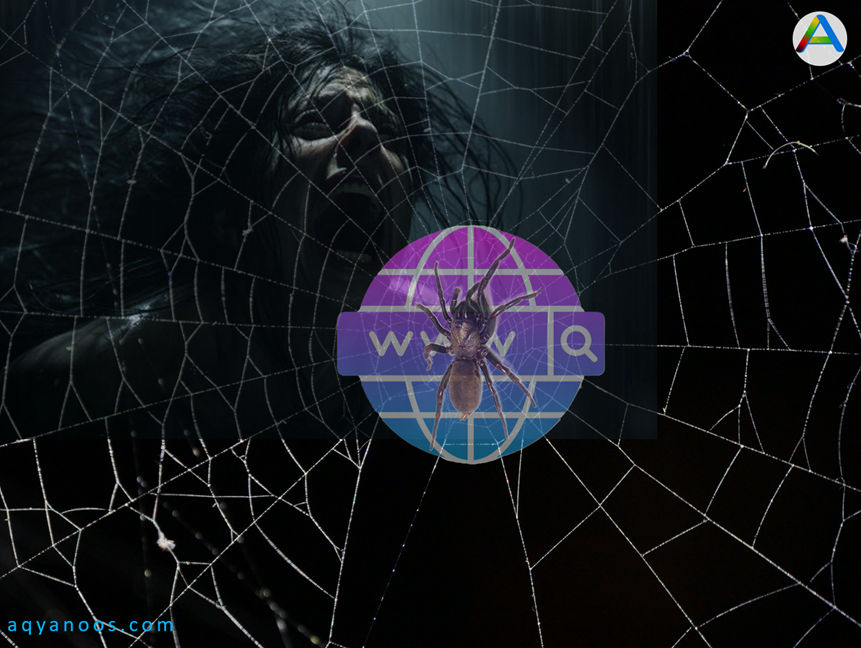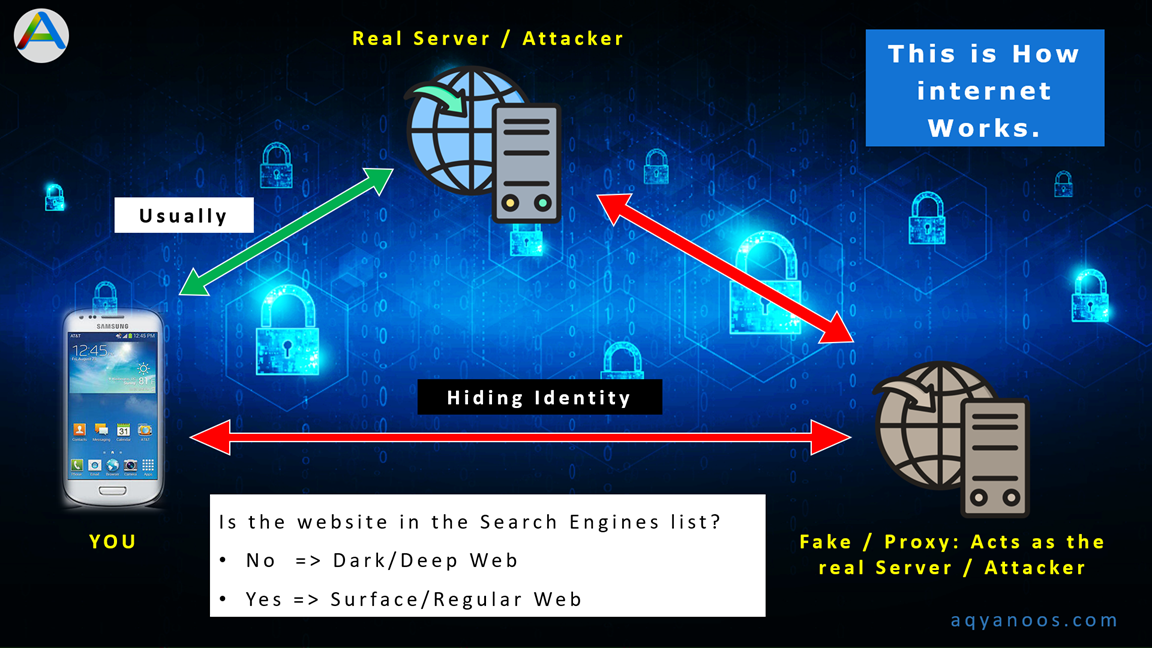1. What Is the Dark Web?
The Dark Web is a small portion of the Deep Web,the part of the internet not accessible through standard search engines. Unlike the Surface Web (websites like Google, Facebook, and Wikipedia), the Dark Web requires special software (like Tor) to access.
It is designed to provide anonymity, making it difficult to track users or website owners.
2. What Is the History of the Dark Web?
- 1960s-1990s: The foundations of the Dark Web began with the development of encryption and anonymous networks by the U.S. military and researchers.
- 2002: The Tor (The Onion Router) network was created by the U.S. Naval Research Laboratory to protect government communications.
- 2004: Tor was released to the public, allowing anonymous browsing.
- 2010s: The Dark Web gained notoriety with platforms like Silk Road (a black market for drugs and illegal goods), which was shut down by the FBI in 2013.
Since then, the Dark Web has been used for both privacy protection and illegal activities.
3. What Is the Dark Web Used For?
Legitimate Uses:
- Whistle-blowing: Platforms like SecureDrop allow anonymous leaks.
- Privacy Protection: Journalists and activists use it to avoid censorship.
- Secure Communication: Used by people in oppressive regimes.
- Research & Cybersecurity: Experts study hacking trends.
Illegal Uses:
- Black Markets: Selling drugs, weapons, and stolen data.
- Hacking Services: Malware, ransomware, and cyber attacks for hire.
- Illegal Content: Extremist forums, counterfeit money, and worse.
4. Who Owns the Dark Web?
No single entity owns the Dark Web. It is a decentralized network of hidden websites (.onion sites) hosted by individuals or groups. However, organizations like Tor Project maintain the software needed to access it.
5. What Are the Risks and Dangers of Using the Dark Web?
- Malware & Scams: Fake websites can infect your device.
- Law Enforcement Monitoring: Visiting illegal sites can get you into trouble.
- Hackers & Cyber criminals: Personal data can be stolen.
- Disturbing Content: Exposure to illegal or harmful material.
6. How to Get Into the Dark Web?
To access the Dark Web safely:
- Download the Tor Browser (from torproject.org).
- Use a VPN for extra security.
- Avoid downloading files or clicking suspicious links.

7. How to Enter the Dark Web?
- Install Tor Browser
- Open it
- Type a .onion URL (e.g., DuckDuckGo's Dark Web version:
https://duckduckgogg42xjoc72x3sjasowoarfbgcmvfimaftt6twagswzczad.onion/)
8. How to Use the Dark Web?
- Search Engines: Use the Dark Web version of DuckDuckGo or Torch.
- Directories: Sites like The Hidden Wiki list known .onion links.
- Stay Anonymous: Never log into personal accounts.
9. What to Be Careful About When Using the Dark Web?
- Avoid illegal activities (law enforcement monitors it).
- Don't share personal info.
- Use strong encryption (VPN + Tor).
- Beware of scams & phishing sites.
10. How Much Does It Cost to Use the Dark Web?
- Accessing the Dark Web is free (Tor is open-source).
- Illegal markets may require cryptocurrency (Bitcoin, Monero) for transactions.
11. Is It Safe to Use the Dark Web?
- Yes, if used carefully (for privacy, journalism, research).
- No, if visiting illegal sites (risk of malware, scams, or legal trouble).
12. Is It Dangerous to Use the Dark Web?
- Yes, if you engage in illegal activities or visit malicious sites.
- No, if you use it responsibly (like journalists or activists).
13. How Risky Is It to Get Into the Dark Web?
- Low risk if you only browse safely.
- High risk if you interact with illegal markets or hackers.
14. Why Is the Dark Web Hidden from Ordinary People?
- Privacy & Security: Protects whistle-blowers and activists.
- Illegal Activities: Criminals exploit its anonymity.
15. Is It Free to Use the Dark Web?
Yes, Tor is free, but some services may charge (e.g., premium hacking tools).
16. Is It Legal to Access the Dark Web?
- Yes, simply accessing it is legal in most countries.
- No, if you engage in illegal activities (drugs, hacking, etc.).
17. Is the Dark Web Illegal to Look At?
No, browsing is not illegal—only illegal actions are punishable.
18. Who Controls the Dark Web?
No one, but law enforcement tracks illegal activities.
19. What Is the Dark Web in Google?
Google does not index the Dark Web, it's only accessible via Tor.
20. How to Access the Dark Web?
Use Tor Browser + VPN for security.
21. Is the Dark Web and the Deep Web the Same?
No.
- Deep Web = Unindexed pages (e.g., private databases, emails).
- Dark Web = A small, hidden part of the Deep Web requiring Tor.
22. What Is the Dark Web Browser?
Tor Browser is the most common (others include I2P, Freenet).
23. What Are the Dark Web Apps and Tools?
- Tor, I2P, Freenet (for anonymity).
- PGP Encryption (secure messaging).
- Bitcoin/Monero (anonymous payments).
24. Who Created the Dark Web?
U.S. Military researchers developed Tor for secure communication.
25. Is the Dark Web Dangerous?
It can be, depending on how you use it.


